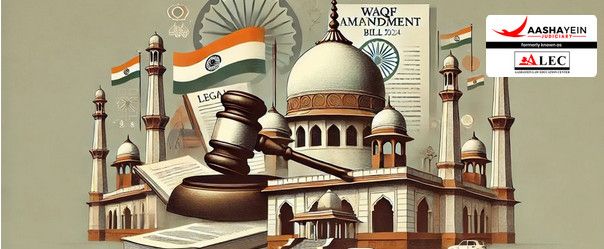The Waqf (Amendment) Bill, which seeks to amend the Waqf Act of 1995, has successfully passed through the Joint Parliamentary Committee (JPC) after months of discussions and deliberations. The bill aims to address the challenges of regulating and managing Waqf properties, which are Muslim charitable properties in India. However, the major amendments approved by the ruling BJP-led National Democratic Alliance (NDA) coalition, while opposition suggestions were rejected.
Overview of the Waqf Amendment Bill
The Waqf (Amendment) Bill, 2024, introduced by Union Minority Affairs Minister Kiren Rijiju, seeks to amend the Waqf Act of 1995 to improve the management and transparency of Waqf properties in India. It includes:
- Inclusivity: Ensuring representation of Muslim women and non-Muslims in Waqf bodies.
- Increased Oversight: Granting district collectors more authority to determine if a property is Waqf or government land.
- Non-Muslim CEO: Allowing the appointment of a non-Muslim as the Chief Executive Officer of Waqf bodies.
These changes aim to address management concerns and enhance the regulation of charitable assets like mosques and graveyards.
You can also read the latest judgment by visiting [Latest Judgment].
For more information, visit [Aashayein Enquiry Section]
Political Developments and Disputes
- Party-Line Voting
- The bill was approved by adopting 14 amendments proposed by BJP-led NDA members and rejecting 44 amendments suggested by opposition MPs, following a majority vote.
- Opposition’s Concerns
- The opposition accused JPC chairman Jagadambika Pal of bias and of "steamrolling" the bill through the committee process, particularly ahead of elections. They also claimed insufficient time to scrutinize the proposed changes.
- Suspension of Opposition MPs
- 10 opposition MPs were suspended after protesting the handling of the bill, further fueling political tensions.
Legal Provisions Under the Waqf Act
- Waqf Act, 1995
- The Waqf Act governs the administration of Waqf properties in India. The Waqf Amendment Bill proposes changes to improve the management and transparency of these properties.
- Article 15 of the Indian Constitution
- Ensures non-discrimination based on religion, which is relevant as the bill suggests inclusion of non-Muslims in Waqf management.
- Article 39A
- Mandates equal access to justice, which is key in the bill's intention to improve the management and regulation of Waqf properties to ensure fair treatment.
What’s Next for the Waqf Amendment Bill?
The final report of the Joint Committee of Parliament (JCP) on the Waqf (Amendment) Bill, 2024, approved 14 amendments from BJP and allies, including changes to the registration timeline, dispute resolution, and Waqf Board composition. The opposition's 44 amendments were rejected. Changes include extending the registration period for Waqf properties and appointing a state-level officer for disputes instead of the district collector.

